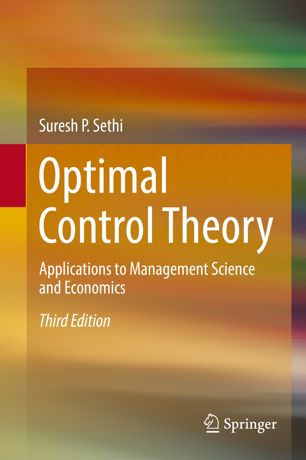

Most ebook files are in PDF format, so you can easily read them using various software such as Foxit Reader or directly on the Google Chrome browser.
Some ebook files are released by publishers in other formats such as .awz, .mobi, .epub, .fb2, etc. You may need to install specific software to read these formats on mobile/PC, such as Calibre.
Please read the tutorial at this link: https://ebookbell.com/faq
We offer FREE conversion to the popular formats you request; however, this may take some time. Therefore, right after payment, please email us, and we will try to provide the service as quickly as possible.
For some exceptional file formats or broken links (if any), please refrain from opening any disputes. Instead, email us first, and we will try to assist within a maximum of 6 hours.
EbookBell Team

0.0
0 reviewsThis fully revised 3rd edition offers an introduction to optimal control theory and its diverse applications in management science and economics. It brings to students the concept of the maximum principle in continuous, as well as discrete, time by using dynamic programming and Kuhn-Tucker theory. While some mathematical background is needed, the emphasis of the book is not on mathematical rigor, but on modeling realistic situations faced in business and economics. The book exploits optimal control theory to the functional areas of management including finance, production and marketing and to economics of growth and of natural resources. In addition, this new edition features materials on stochastic Nash and Stackelberg differential games and an adverse selection model in the principal-agent framework. The book provides exercises for each chapter and answers to selected exercises to help deepen the understanding of the material presented. Also included are appendices comprised of supplementary material on the solution of differential equations, the calculus of variations and its relationships to the maximum principle, and special topics including the Kalman filter, certainty equivalence, singular control, a global saddle point theorem, Sethi-Skiba points, and distributed parameter systems.
Optimal control methods are used to determine optimal ways to control a dynamic system. The theoretical work in this field serves as a foundation for the book, which the author has applied to business management problems developed from his research and classroom instruction. The new edition has been completely refined and brought up to date. Ultimately this should continue to be a valuable resource for graduate courses on applied optimal control theory, but also for financial and industrial engineers, economists, and operational researchers concerned with the application of dynamic optimization in their fields.